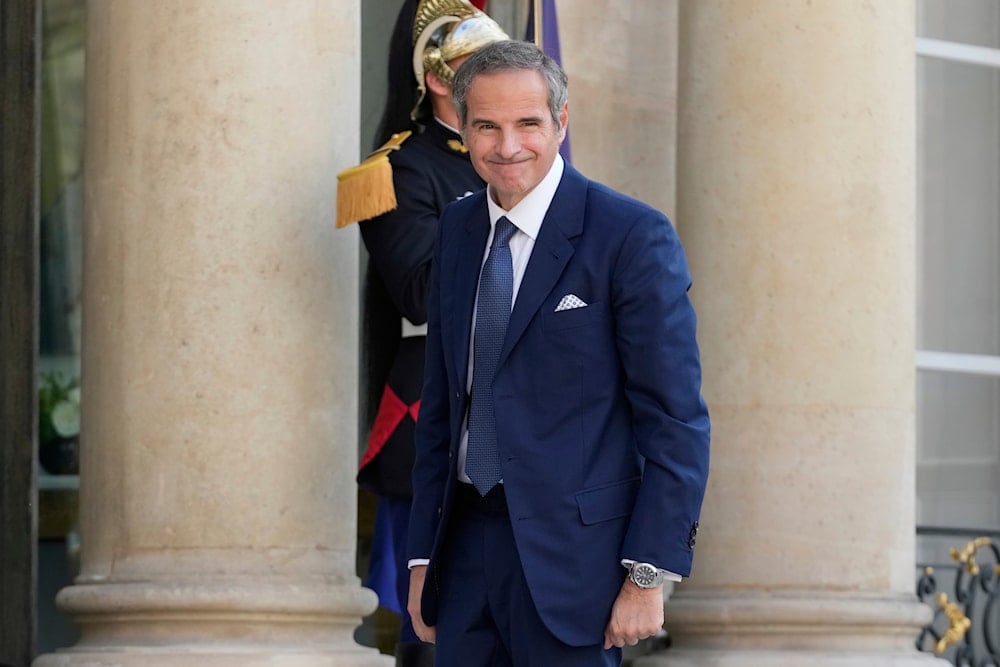UN, US in crisis talks after Iran froze IAEA nuclear inspections
IAEA officials will travel to Washington to discuss stalled nuclear inspections in Iran after the Israeli war on Iran in June.
-

International Atomic Energy Agency (IAEA) Director General Rafael Mariano Grossi arrives for a meeting with French President Emmanuel Macron, Wednesday, June 25, 2025, at the Elysee Palace in Paris (AP)
International Atomic Energy Agency officials are set to travel to Washington next week for meetings with the United States, as concerns grow among diplomats familiar with the situation over their inability to account for Iran’s stockpile of uranium enriched to a high level, Bloomberg reported, citing sources.
This trip was organized following a recent unsuccessful attempt by the IAEA's top inspector, appointed by Director General Rafael Mariano Grossi, to secure Iranian approval for the resumption of monitoring activities, an effort that came after the 12-day Israeli war on Iran in June, according to three diplomats who requested anonymity due to the sensitive nature of the information.
This development occurs as the United Nations nuclear watchdog becomes increasingly pessimistic about the possibility of returning inspectors to Iran, after they were expelled during the June conflict, effectively ending international oversight concerning the extent and purpose of the Islamic Republic’s nuclear capabilities.
Iran maintains that sites bombed by the US and the Israeli occupation remain unsafe for inspections, though it suggested visits to unaffected locations like its Russian-built power plant might soon be possible, while access to its main nuclear-fuel complex is still denied.
West ups the pressure on Iran; Iran does not yield
This comes as E3 countries increase the pressure on Iran, threatening to invoke the snapback mechanism and impose sanctions on Iran if a new agreement to replace the JCPOA isn't reached.
On August 21, Iran’s Foreign Minister, Abbas Araghchi, speaking to IRNA, dismissed any attempt by the three European signatories to the 2015 nuclear accord to trigger the UN’s snapback mechanism as an unlawful act and warned that Tehran has prepared a response should the measure be pursued.
Araghchi argued that European powers have forfeited their right to use the snapback provision, a consequence of their recent stance on Iran’s nuclear programme, which included discussions on the concept of “zero enrichment.”
“Even if we assume you have the right, what will happen if you do it? First, Europe's role in diplomacy will be completely over... What remains after that? The end of diplomacy?” Araghchi questioned, signalling that imposing the sanctions would mean an end to Europe's role as a diplomatic mediator.

 3 Min Read
3 Min Read










